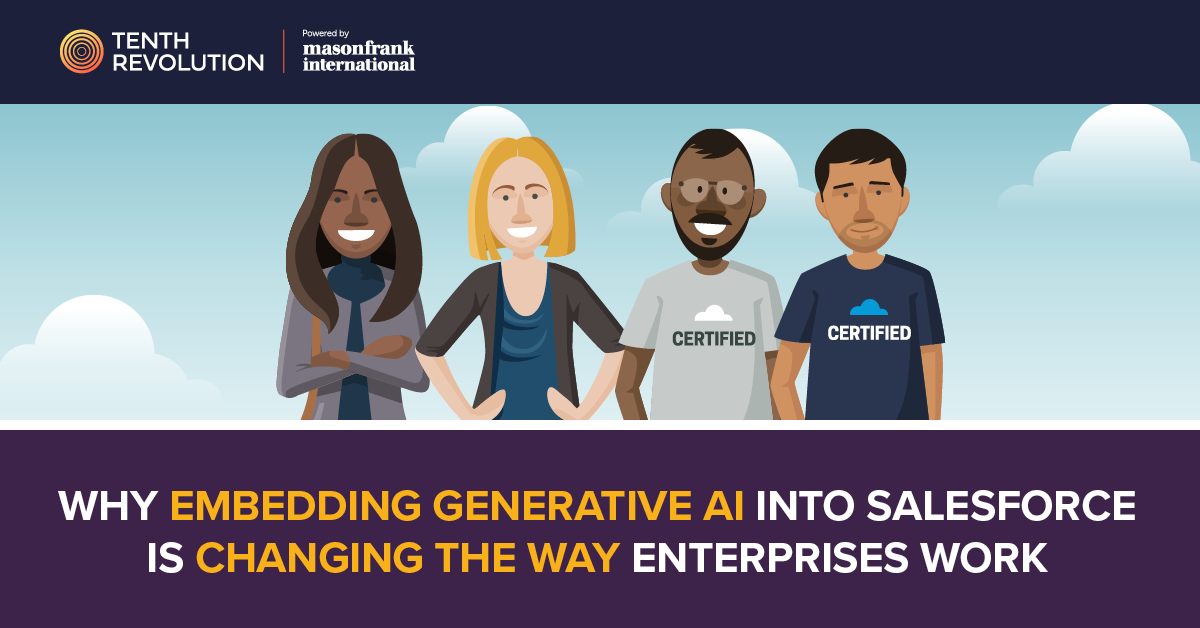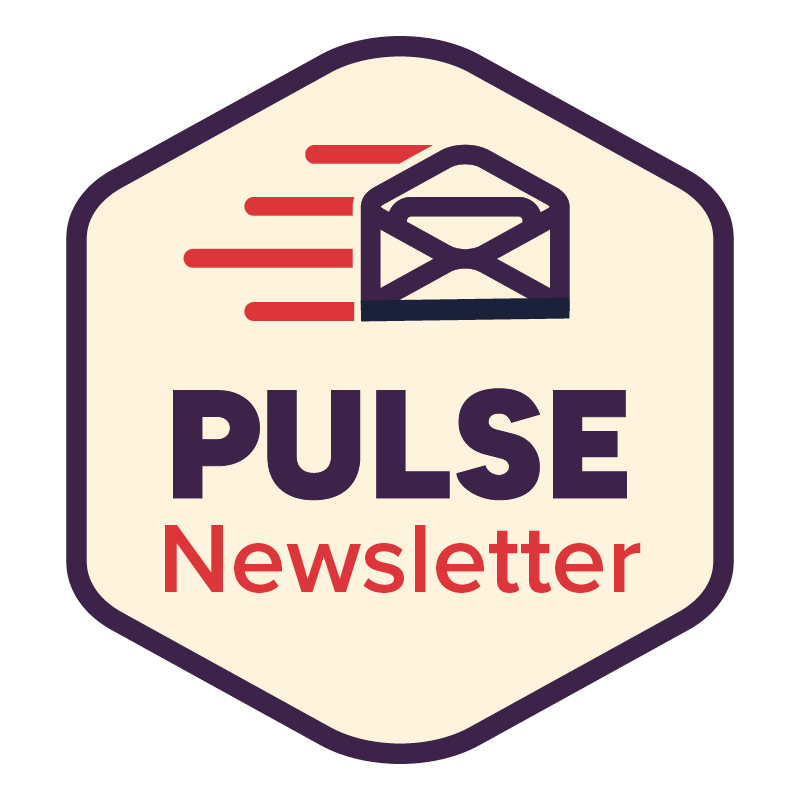
Generative AI is no longer something you experiment with in a sandbox.
For enterprises using Salesforce, it’s quickly becoming part of how teams sell, service, and market every single day. The shift is happening quietly but decisively: what began with small pilot projects is turning into embedded, workflow-native AI that helps organizations work faster, smarter, and with more control over outcomes.
Business leaders have heard plenty of hype about AI. What’s different now is the way Salesforce is making it operational. Instead of being another tool to manage, generative AI is being built directly into the Salesforce platform through Einstein Copilot and grounded in trusted customer data with Salesforce Data Cloud. That integration makes all the difference, because it puts AI where your teams already live and ensures the output is based on governed, consented information rather than random guesswork.
The shift from pilot projects to production workflows
Only a year or two ago, most AI use cases inside Salesforce looked like proof-of-concepts. Teams would test whether an AI model could draft a sales email or summarize a case log. The results were promising, but executives often hesitated to expand because of compliance concerns or uncertainty around ROI. That hesitation is fading as Salesforce has built out the Einstein Trust Layer, which provides security controls, auditability, and data governance.
Once those guardrails are in place, scaling becomes a much safer proposition. Instead of a few isolated wins, enterprises are embedding AI into the very fabric of their workflows. A sales team can rely on Copilot to prepare an account summary before a meeting, while the service department can use it to recommend the best resolution for a tricky case. The same technology can generate personalized campaign content for marketing, all in real time and without leaving the Salesforce ecosystem.
Making this leap takes more than technology. Mason Frank provides Salesforce professionals with AI and Data Cloud expertise to help organizations safely embed Copilot into business-critical workflows.
Why trust and data grounding matter
Executives know the risks of deploying AI without the right guardrails. If outputs are inaccurate or compliance boundaries are crossed, the costs can be significant – both financially and reputationally. That’s why Salesforce built the Einstein Trust Layer and tied it closely to Data Cloud.
Data Cloud ensures that copilots and autonomous agents act on live, consent-aware data pulled directly from integrated systems like Snowflake or Databricks. This grounding gives leaders confidence that the insights their teams rely on are relevant and compliant. It also means that AI responses can be audited, explained, and governed in ways that meet enterprise standards. Without that foundation, scaling AI would be a gamble. With it, AI becomes a real competitive advantage.
AI copilots can only be as effective as the teams behind them. Mason Frank connects businesses with trusted Salesforce talent who can configure, govern, and scale generative AI so it delivers measurable results.
What this looks like in practice
The most compelling proof comes from how these capabilities show up in everyday work. A salesperson can enter a call prepared with a Copilot-generated briefing that combines purchase history, service interactions, and even open opportunities, all drawn from Data Cloud in real time. That level of preparation used to take hours of manual digging across different systems.
In customer service, agents are already seeing how copilots change the game. Instead of searching through knowledge bases, they validate suggestions served up instantly by AI. That means quicker responses, happier customers, and lower costs for the business.
Marketing teams are discovering the same value on their side. Generative AI can draft subject lines, campaign copy, and personalized offers that are tested against live engagement data. What once took days of iteration can now be turned around in a single afternoon.
These are not futuristic use cases. They’re already being piloted, and with the trust and governance framework in place, they are beginning to scale across enterprises.
What leaders need to think about
Embedding generative AI into Salesforce isn’t a purely technical project. It’s also a leadership challenge. Executives should consider three key questions:
First, how ready is your data? AI outputs are only as good as the inputs they’re grounded in. That means investing in Salesforce Data Cloud or equivalent foundations that bring together behavioral, transactional, and operational data in a consent-aware way.
Second, how will you handle change management? Teams will need training to shift from doing the work themselves to validating AI outputs. That requires a cultural adjustment and clear communication about the role of human oversight.
And third, how do you measure success? Traditional ROI models might not capture the full impact of AI on speed, accuracy, or customer experience. Leaders should identify metrics that reflect the real value of faster case resolutions, improved win rates, or higher engagement levels.
Why it’s time to act
The window for experimentation is closing. Generative AI in Salesforce is moving fast, and the enterprises that embed it early will gain ground on those still waiting. Early adopters are already seeing productivity gains and stronger customer outcomes, while laggards risk being stuck with disconnected tools and outdated workflows.
For business leaders, the decision is less about whether to use AI and more about how quickly you can operationalize it in a secure, compliant way. With Einstein Copilot, the Trust Layer, and Data Cloud, Salesforce has created the conditions for enterprises to do exactly that.
The takeaway is simple: AI isn’t becoming a separate line item in your technology stack. It’s becoming the operating layer of Salesforce itself. Companies that embrace that shift now will be best placed to compete in a world where customer expectations only get higher.


